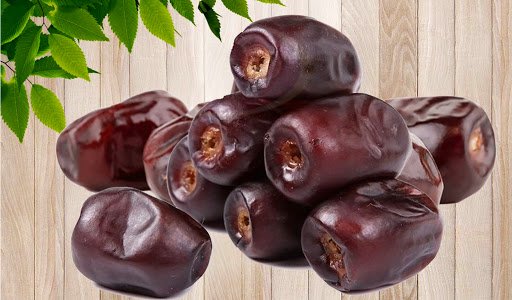
Kedai Borong Kurma: The Environmental Impact of Date Farming
Dates, nature’s candy, have captivated taste buds and enriched cultures worldwide. With the rising popularity of dates, the demand for these delectable fruits is growing. This necessitates a closer look at the supply chain, particularly at kedai borong kurma (wholesale date stores). But beyond the economics of dates, lies the crucial question of their environmental impact. This blog post explores the concept of kedai borong kurma and delves into the environmental considerations surrounding date palm cultivation.
A World of Wholesale Delights: Unveiling Kedai Borong Kurma
Kedai borong kurma, translated as wholesale date stores, play a vital role in the date supply chain:
- Supplier Hubs: These stores act as hubs for date suppliers, offering a wide variety of date types and quantities at competitive prices.
- Bulk Buying Options: wholesale date stores cater to businesses like restaurants, cafes, and even individual consumers looking to purchase dates in bulk.
- Cost-Effective Sourcing: Purchasing dates in bulk from wholesale date stores can be a cost-effective option, especially for businesses that require large quantities.
The presence of wholesale date stores ensures a steady supply of dates to meet the growing demand while offering cost benefits to bulk buyers.
A Sweet Dilemma: Environmental Impact of Date Farming
While dates offer a delicious and nutritious treat, date palm cultivation presents some environmental challenges:
- Water Consumption: Date palms are known to be water-intensive crops, requiring significant irrigation in arid regions. This can put a strain on already scarce water resources.
- Land Use: Extensive date palm plantations can lead to land-use changes, potentially impacting biodiversity and traditional vegetation.
- Soil Salinization: Improper irrigation practices can lead to soil salinization, reducing soil fertility and impacting future crop yields.
These challenges necessitate sustainable practices to ensure the long-term viability of date farming.
A Sustainable Future: Opportunities for Eco-Friendly Date Production
Despite the challenges, there are opportunities for sustainable date production:
- Water Conservation Techniques: Implementing drip irrigation and utilizing recycled water can significantly reduce water consumption in date palm cultivation.
- Intercropping: Planting other crops alongside date palms can improve soil health, promote biodiversity, and maximize land use.
- Organic Practices: Utilizing organic fertilizers and pest control methods can minimize environmental pollution and promote healthy ecosystems.
By adopting sustainable practices, date farming can evolve into a more environmentally responsible industry.
Conclusion: Balancing Sweetness with Sustainability
Exploring the world of kedai borong kurma (wholesale date stores) and delving into the environmental impact of date farming offer a well-rounded perspective on these versatile fruits. While wholesale date stores ensure a steady supply of dates, date palm cultivation necessitates sustainable practices to address water consumption, land use, and soil salinization concerns. Fortunately, advancements in irrigation techniques, intercropping, and organic practices offer promising solutions for a more eco-friendly date farming future. So, the next time you savor a date purchased from a wholesale date store, remember the journey it represents and the ongoing efforts to ensure a sustainable future for this delectable fruit.
Key Highlights:
- Kedai borong kurma (wholesale date stores) play a vital role in the date supply chain, offering a wide variety of dates at competitive prices for businesses and bulk buyers.
- Date palm cultivation presents environmental challenges like water consumption, land-use changes, and soil salinization, requiring sustainable practices for long-term viability.
- Water conservation techniques, intercropping, and organic practices offer promising solutions for a more sustainable date farming industry.